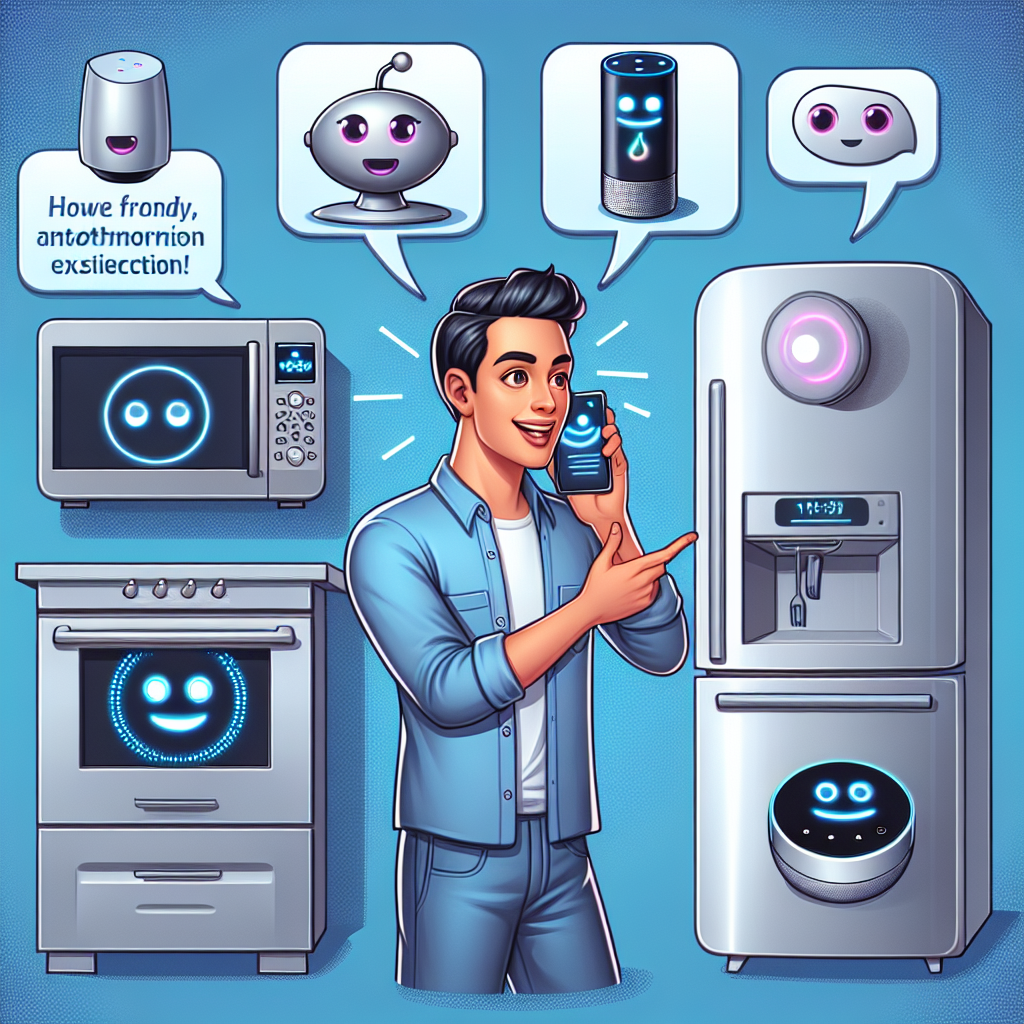The business world is experiencing a seismic shift as AI SaaS creation platforms revolutionize how we approach work, innovation, and problem-solving. These powerful tools aren’t just changing the software landscape – they’re fundamentally transforming how businesses operate and thrive in an increasingly digital economy. For entrepreneurs, small businesses, and developers alike, understanding these emerging trends isn’t optional – it’s essential for staying competitive in 2024 and beyond.
According to recent industry reports, enterprise buyers are expected to invest a staggering $4.6 billion in generative AI applications in 2024 – nearly eight times more than the $600 million spent last year. This explosive growth signals a pivotal moment where AI SaaS creation platforms are moving from experimental technology to business-critical infrastructure. This explosive growth is nothing short of revolutionary.
Let’s explore the five most significant trends that are reshaping our work environments and unlocking new possibilities for innovation.
The Power of Personalization at Scale
One of the most transformative capabilities of modern AI SaaS creation platforms is their ability to deliver deeply personalized experiences to users at unprecedented scale. Unlike traditional software that offers the same experience to everyone, AI-powered SaaS solutions can analyze user behavior, preferences, and needs to create tailored interactions that feel remarkably human.
For SaaS companies, this level of personalization drives significant business results. Studies show that businesses leveraging AI for personalization report 10-15% revenue increases on average. This isn’t surprising when you consider how personalization enhances user engagement, satisfaction, and loyalty. The numbers speak for themselves.
Take B2B SaaS platforms, for example. Modern AI systems can now analyze complex user behaviors – from webinar attendance and email engagement to demo requests – automatically scoring leads and enrolling them in personalized nurture campaigns. This hyper-personalization extends beyond marketing to the product experience itself, where interfaces and features adapt to individual user preferences and work patterns.
The true breakthrough here is the combination of deep personalization with massive scalability. AI enables SaaS platforms to deliver customized experiences simultaneously to thousands or even millions of users – something that would be impossible with human efforts alone. For individual entrepreneurs and small businesses, this means accessing enterprise-grade personalization capabilities that were previously available only to the largest corporations.
Key AI Development Trends Transforming SaaS
The following AI developments are reshaping the SaaS landscape and creating new possibilities for businesses of all sizes.
The integration of cutting-edge AI technologies is dramatically enhancing what SaaS platforms can accomplish. Three key development areas are proving particularly transformative: Let’s examine these transformative developments:
Predictive Analytics
AI-powered predictive capabilities are transforming SaaS from reactive to proactive tools. Modern platforms can now analyze historical data patterns to forecast future outcomes, enabling smarter and faster business decisions. For instance, sales teams can identify which prospects are most likely to convert, while support teams can anticipate customer issues before they escalate.
This predictive power extends to business operations as well. AI SaaS platforms can forecast resource needs, identify potential bottlenecks, and suggest optimization strategies – all based on analyzing patterns that might be invisible to human observers. For small businesses with limited resources, these capabilities provide a competitive edge previously available only to enterprises with dedicated data science teams.
Workflow Automation
AI is taking workflow automation to entirely new levels of sophistication. Unlike traditional automation that follows rigid, pre-programmed rules, AI-powered workflow automation can handle complex scenarios, adapt to changing conditions, and even learn from experience.
This advancement means businesses can now automate increasingly complex processes that previously required human judgment. From content creation and customer service to financial analysis and project management, AI-powered workflow automation is freeing teams from routine tasks to focus on strategic work that drives growth.
At Zygote.AI, we’ve developed workflows that autonomously select topics, write content, generate illustrations, perform reviews, and publish promotional materials – showcasing the potential for fully automated end-to-end processes. This represents a fundamental shift in how work gets done, enabling even small teams to achieve productivity levels that were previously unimaginable.
Natural Language Processing
The rapid advancement of natural language processing (NLP) technologies is perhaps the most visible AI breakthrough affecting SaaS platforms. Modern NLP enables software to understand, interpret, and generate human language with remarkable accuracy and nuance.
For SaaS applications, this translates to more intuitive interfaces where users can interact through conversation rather than complex menus and commands. From customer support chatbots to voice-activated analytics dashboards, natural language interfaces are making software more accessible to non-technical users.
The implications for developers are equally significant. NLP-powered coding assistants can now help generate code, debug issues, and translate business requirements into functional applications – accelerating development cycles and lowering the technical barriers to creating sophisticated software.
The Rise of Intelligent Collaboration Tools and Digital Workers
The way teams work together is being reimagined through AI-powered collaboration platforms. These intelligent tools go beyond simple file sharing and communication to actively facilitate more productive teamwork.
Intelligent collaboration platforms can now analyze team interactions, identify communication patterns, and suggest improvements to enhance productivity. They can automatically organize information, summarize discussions, and ensure important details don’t fall through the cracks. For distributed teams – increasingly common in today’s remote work environment – these capabilities help maintain cohesion and clarity despite physical distance.
Alongside these collaboration tools, customizable AI digital workers are emerging as powerful allies for teams of all sizes. These digital workers can take on repetitive tasks across departments – from scheduling meetings and managing emails to processing invoices and generating reports. Unlike rigid automation tools, these AI assistants can be trained to understand company-specific workflows and terminology, making them remarkably effective in specialized contexts.
For small businesses and startups, customizable AI digital workers offer a way to extend team capabilities without increasing headcount. A marketing team of three can now accomplish what previously required a team of ten by delegating routine tasks to digital workers while focusing human creativity on strategy and high-value activities.
Democratization Through Low-Code Platforms
Perhaps the most revolutionary trend in AI SaaS creation is the democratization of technology development through low-code platforms. These accessible tools are putting the power of AI application creation into the hands of people with minimal coding knowledge, fundamentally changing who can build software.
Low-code AI platforms provide visual interfaces, drag-and-drop components, and pre-built templates that allow users to create sophisticated applications without writing extensive code. This democratization is unleashing innovation from unexpected sources – subject matter experts in fields like healthcare, finance, and education can now build specialized AI applications tailored to their unique needs without relying on technical teams.
For developers, low-code platforms aren’t a threat but a multiplier, enabling them to create more sophisticated solutions more quickly. By handling routine aspects of development, these platforms free technical professionals to focus on complex problems and innovative features that drive competitive advantage.
Zygote.AI exemplifies this democratizing approach, offering a user-friendly platform where anyone can bring their ideas to life through intelligent and efficient AI applications. By removing technical barriers, we’re fostering innovation across industries and empowering a new generation of creators.
The Explosion of Personal Use AI Products
While enterprise applications get most of the headlines, 2024 is also witnessing an explosion in personal use AI products designed for individual productivity and convenience. These user-friendly AI tools are transforming how people manage their daily work and personal lives.
From AI writing assistants that help craft emails and reports to personal finance managers that optimize spending and saving, these tools bring enterprise-grade AI capabilities to individual users. Time management AI that analyzes personal work patterns and suggests optimal schedules for deep work is becoming increasingly popular among entrepreneurs and freelancers.
The trend toward personal AI tools reflects a broader shift toward individual empowerment through technology. As AI becomes more accessible, people are no longer waiting for their organizations to adopt new tools – they’re finding and implementing solutions that address their specific needs.
What makes these personal AI products particularly powerful is their ability to learn and adapt to individual preferences over time. Unlike one-size-fits-all productivity tools, AI-powered personal assistants become increasingly valuable as they gather more data about how you work, communicate, and make decisions.
Marketplaces for Sharing and Selling AI Products
As AI SaaS creation becomes more accessible, we’re seeing the rapid growth of marketplaces dedicated to sharing and selling AI products. These platforms are creating vibrant ecosystems where creators can distribute their innovations and users can discover specialized tools for their specific needs. This ecosystem approach is rapidly accelerating AI adoption.
These marketplaces serve multiple important functions in the AI ecosystem. For creators, they provide distribution channels to reach users without building marketing infrastructure from scratch. For users, they offer curated collections of AI tools with reviews and ratings to help identify the most effective solutions. And for the broader community, they accelerate innovation by allowing creators to build on each other’s work.
The economic opportunity is substantial – individual entrepreneurs and small teams can now develop specialized AI applications and monetize them through these marketplaces, creating new revenue streams without major infrastructure investments. This is particularly powerful for domain experts who can translate their specialized knowledge into valuable AI tools.
Zygote.AI’s vision includes building an open market where users can share and sell their AI SaaS products, fostering continuous innovation and growth. By connecting creators with users who need their solutions, these marketplaces are catalyzing a new wave of entrepreneurship and problem-solving.
The Emergence of AI Agent Technology
Perhaps the most forward-looking trend in AI SaaS platforms is the development of AI agent technology – autonomous systems capable of performing complex tasks with minimal human oversight. Unlike traditional automation that follows preset instructions, AI agents can make decisions, adapt to changing circumstances, and learn from outcomes.
These agents operate by understanding user preferences and behaviors, then proactively taking actions to achieve desired outcomes. For example, an AI sales agent might autonomously identify prospects, personalize outreach, schedule meetings, and even conduct initial discussions – all while learning which approaches yield the best results.
The potential applications span virtually every business function. AI agents can manage customer support queues, optimize marketing campaigns, monitor system security, and coordinate team projects – all while continuously improving their performance through learning.
While still emerging, this technology represents the next frontier in how AI will transform work. At Zygote.AI, our ultimate goal aligns with this vision – achieving fully automated workflows that require minimal human intervention while delivering exceptional results.
Looking Ahead: The Future of Work with AI SaaS Creation Platforms
Key Takeaway: AI SaaS creation platforms are fundamentally changing not just what we can build, but who can build it and how quickly innovation can spread.
As we look toward the future, it’s clear that AI SaaS creation platforms aren’t just changing individual tools or processes – they’re fundamentally reshaping how we think about work itself. The trends we’ve explored point toward a world where technology amplifies human creativity and problem-solving rather than replacing it. The transformation is already well underway.
For individual entrepreneurs, small businesses, and developers, these platforms offer unprecedented opportunities to innovate, compete, and grow. The democratization of AI development means that good ideas can now become reality regardless of technical background or resource constraints.
At Zygote.AI, we’re committed to this vision of empowered creation. We believe that by making AI SaaS creation accessible to everyone, we can unlock solutions to challenges both large and small, fostering innovation and collaboration across industries and communities.
The future of work isn’t about AI replacing humans – it’s about creating powerful partnerships between human creativity and machine intelligence. By embracing these trends and the platforms that enable them, we can all participate in building a smarter, more efficient world where technology helps us achieve our full potential.









